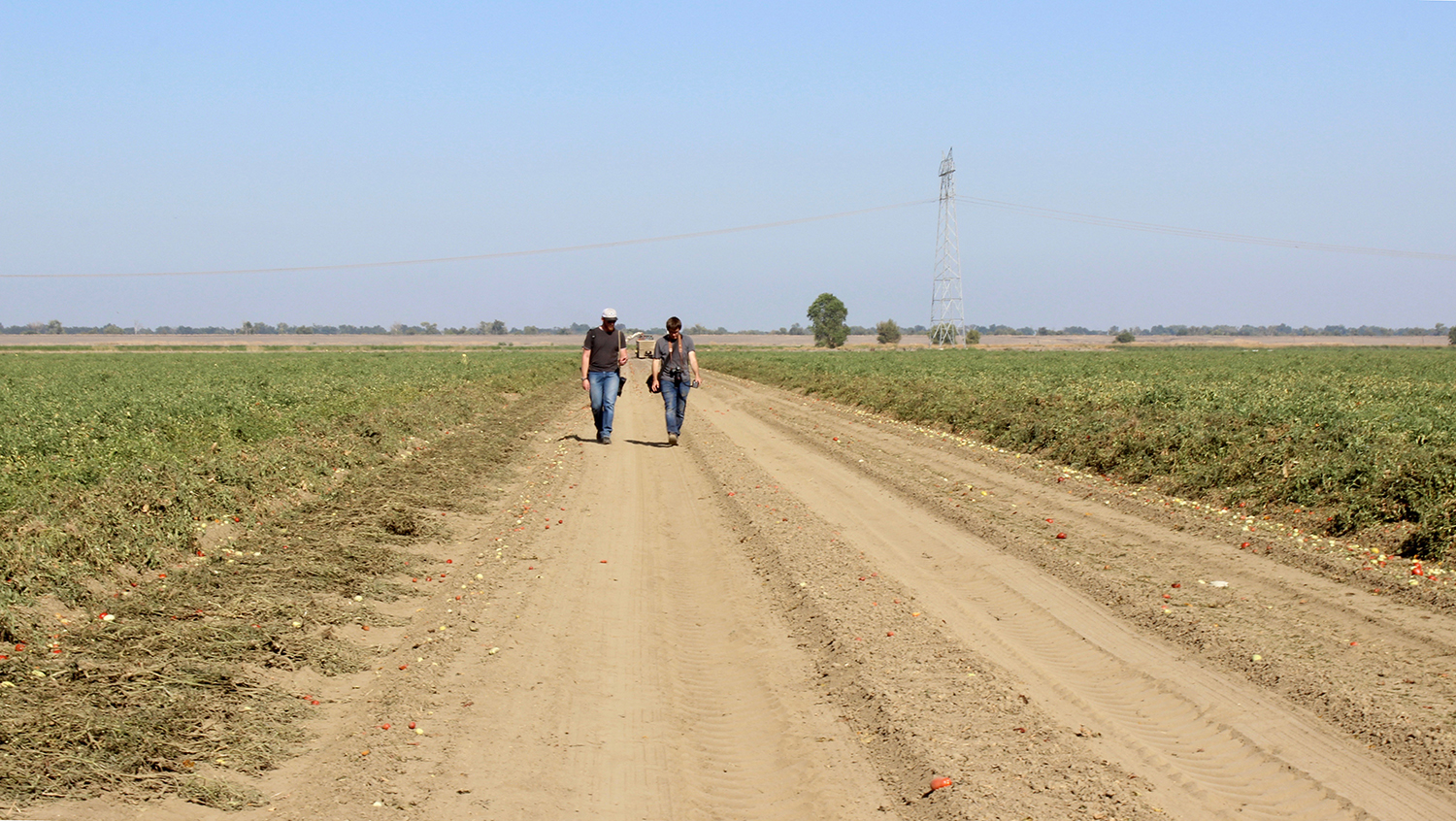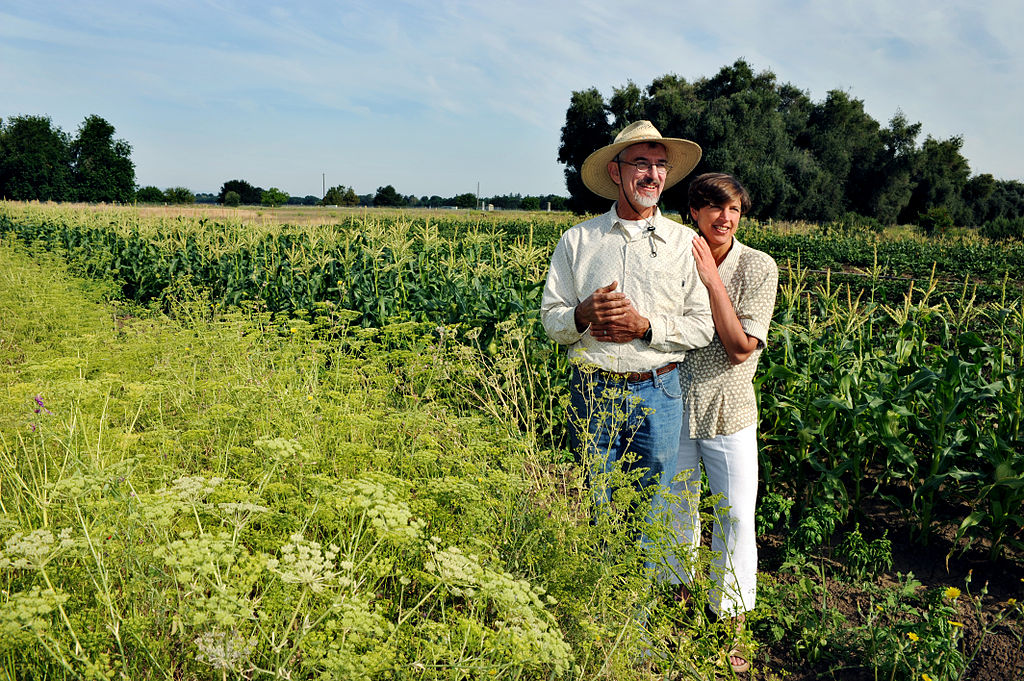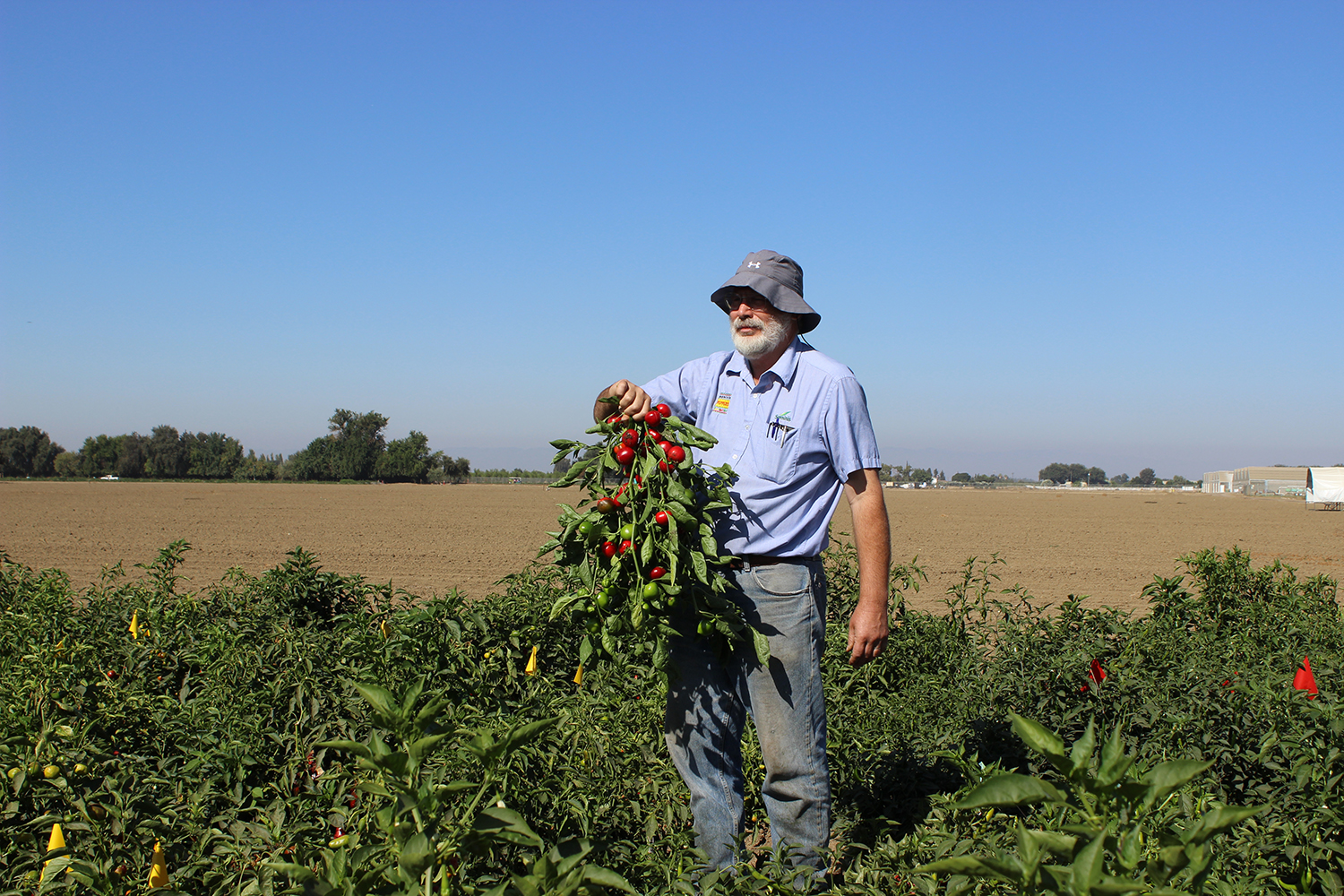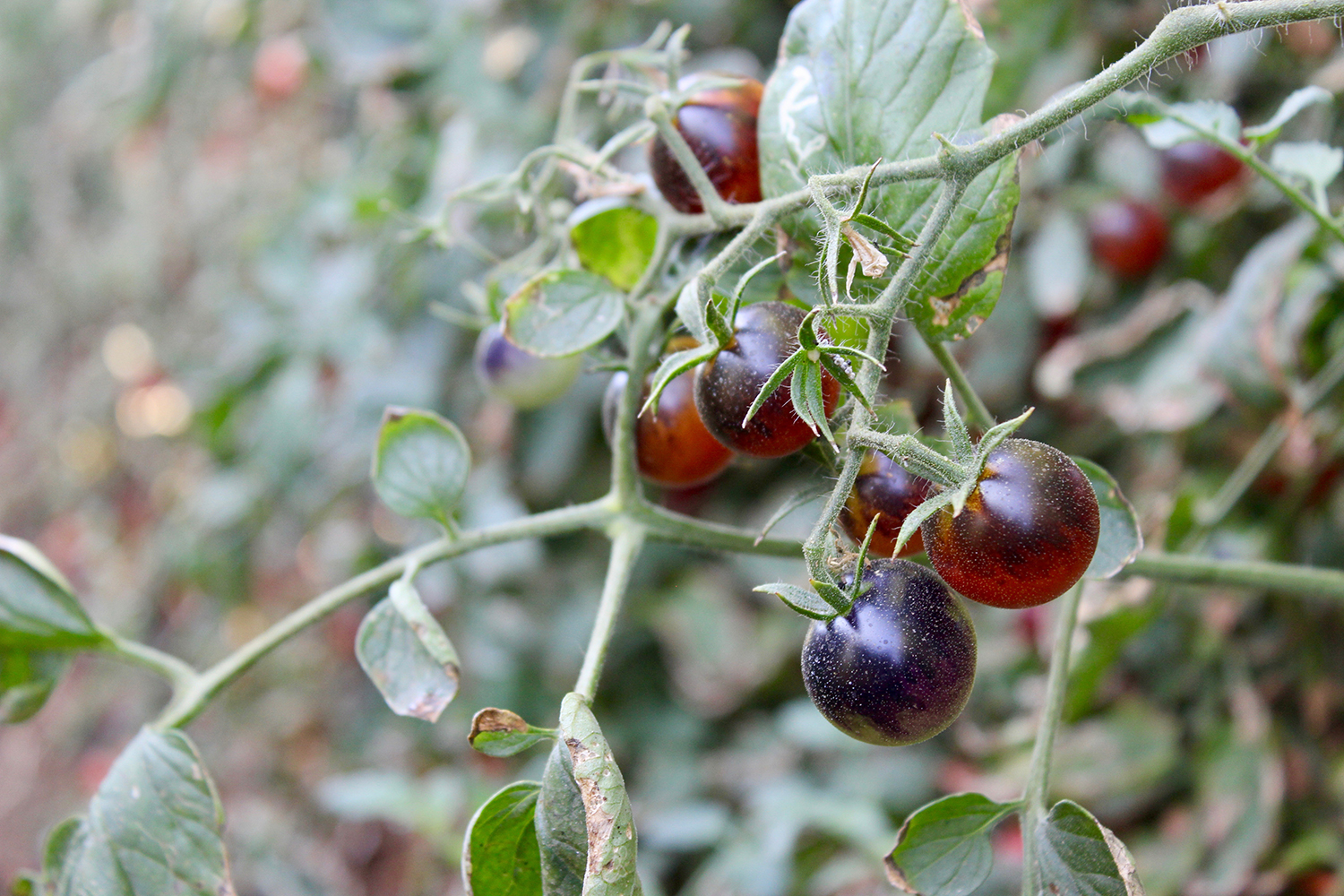
(Photos by Katherine Baker/Columbia University)

(Photos by Katherine Baker/Columbia University)
If you’ve been to a grocery store in the past couple of years, you may have noticed what seems like a sudden emergence of “Non-GMO” or “GMO Free” labels popping up everywhere. But what are GMOs? And are they harmful to people and the planet, or are they necessary?
There seems to be a lot of confusion around the topic of GMOs among the public. And with the plethora of information and fear surrounding the topic, it’s easy to get overwhelmed in deciphering the truth.
But as a consumer and an environmental science and nutrition student, I was determined to broaden my perspective, and set out to speak with a farmer and a plant scientist to learn more about what role GMOs may have in our world.

After reading the book “Tomorrow’s Table,” I spoke with authors Raoul W. Adamchak, an organic farmer and educator at University of California Davis, as well as his wife, Pamela C. Ronald, a professor from the Department of Plant Pathology and Genome Center, also at University of California Davis.
As I read, researched, and spoke with different people about GMOs, I discovered an under-appreciated perspective, worthy of being more widely shared.
Surprisingly, there is no true precise or universal scientific definition of the phrase “GMO,” nor is there any regulation around its use for labeling in the United States, which may contribute to the large amount of public confusion surrounding the topic.
Says Ronald: “Many people use it to mean ‘genetically modified organism,’ but the FDA doesn’t use that term because everything we eat is genetically modified in some manner, and we generally don’t eat whole organisms, so it doesn’t really have a scientific meaning.
“I try not to use that term because I think it really confuses people,” she added.
And confuse people it does. Many misinterpret long-used gene-altering techniques to be the same thing as genetic modification, when the two are in fact distinct (albeit similar) entities. And while media hype may lead you to believe all things non-organic and local are full of GMOs, large cost and regulatory barriers actually keep the number of genuine GMOs on the market quite low.
The safety of GMOs is frequently brought into question. But when it comes to GMOs and human health, the science overwhelmingly agrees that genetically modified foods are indeed safe for consumption. The American Association for the Advancement of Science, WHO, National Academy of Sciences, and FDA, all say that GMOs are safe for consumption based on the plethora of available data.
According to Ronald, part of the broad misconception about GMOs may be due to lack of ample communication on the topic from scientists, farmers, and the agriculture industry.

The rampant and increasing mistrust of scientific entities in combination with the plethora of false science, nutrition, and agriculture information flooding our news feeds makes it increasingly difficult for legitimate information to reach people’s ears in what Ronald calls a “fear-based market and economy.”
And although the notion of food that has been tinkered with in a lab is understandably unsettling to some, it’s interesting to reflect on our otherwise general trust of medications that have been created in similar settings.
GMOs, it seems, are often villainized, despite the fact that they have no proven long-term negative health or environmental impacts, have offered enormous benefits to others and are addressing real-world issues related to sustainability and malnutrition.
GMOs and gene-altering techniques on agricultural crops can, in fact, be useful.
How exactly? “Geneticists are using modern gene modification to enhance sustainability,” Ronald says.
GMOs already have been shown to reduce pesticide use, increase crop yields, and boost farmer income in both developing and developed nations, which may help move the planet toward a more sustainable food system.
Furthermore, the genetic addition of certain micronutrients to staple crops, as with the addition of beta-carotene to “golden” rice, has helped address some issues of malnutrition.
And with climate change creating more severe storms and unpredictable weather patterns, gene modification may offer an added layer of heartiness to plants to manage extreme weather.
For example: Ronald’s lab and their collaborators have used marker-assisted breeding, to “develop gene markers that can survive floods as the climate changes.”
Sometimes, GMOs can even save a crop. The papaya once was threatened by extinction by the papaya ringspot virus. Fortunately, a plant geneticist from Cornell University was able to insert a gene modification that made the crop resistant to the devastating disease, thereby essentially saving the papaya industry and allowing consumers worldwide to enjoy this popular vitamin C-rich fruit.
And although not currently allowed in organic farming, some believe GMO seeds could offer a benefit to the organic industry, as well.
As with conventional crops, using GMOs in organic farming could improve yields of organic (and conventional for that matter) crops, and deliver fewer heavily pesticide-raised foods to the market.

“I think that if genetically engineered traits were allowed in organic farming, there could be could be a lot of benefits, because there are pests that are difficult to control (by organic methods),” Adamchak says.
Pests are an issue for all farmers, but a particular challenge for organic farmers, who are unable to use many pest-resistant pesticides on their crops. With climate change increasing the burden of invasive species and pathogens, a gene modification that could improve pest-resistance could lead to higher yields of organic crops, a win-win for consumers and farmers alike (as long as those extra crops don’t go to waste, of course).

But will the organic farming industry accept GMOs?
Adamchak didn’t seem overly optimistic at the prospect, which could potentially be a missed opportunity for sustainable food systems going forward.
“The bigger issue as an organic grower is how does the attitudes of organic growers affect agriculture as a whole? Because organic agriculture uses only 1% land in the U.S., and 99% is conventionally grown,” Adamchak says.
“So If you want to change that system, if you want to make that system more sustainable, using genetically modified traits that reduce pesticide use, that reduce soil erosion depending on how it’s used, this could make that 99% of agriculture more sustainable — less of an impact on the environment, more profit for growers,” he says. “And clearly the attitudes of the organic community have impacted the spread of genetically modified traits and also how they’re perceived by consumers. And I think that’s a problem.”
The farmer-consumer dynamic is challenging: Consumers rely on farmers for food, but farmers must produce things consumers will buy. The difficulty lies in creating a sustainable and trusting system that pleases both sides.
After gathering these nuances about GMOs, I reckoned with what I could do to improve the food system myself. I think the first step, as a scientist and consumer, is to educate oneself about the topic and help spread factual information, which may lessen the fear of GMOs in general.
Furthermore, supporting sustainable food technologies — GMO, gene altering, or otherwise — may help us address the monumental challenge of creating a more sustainable food system for our future.